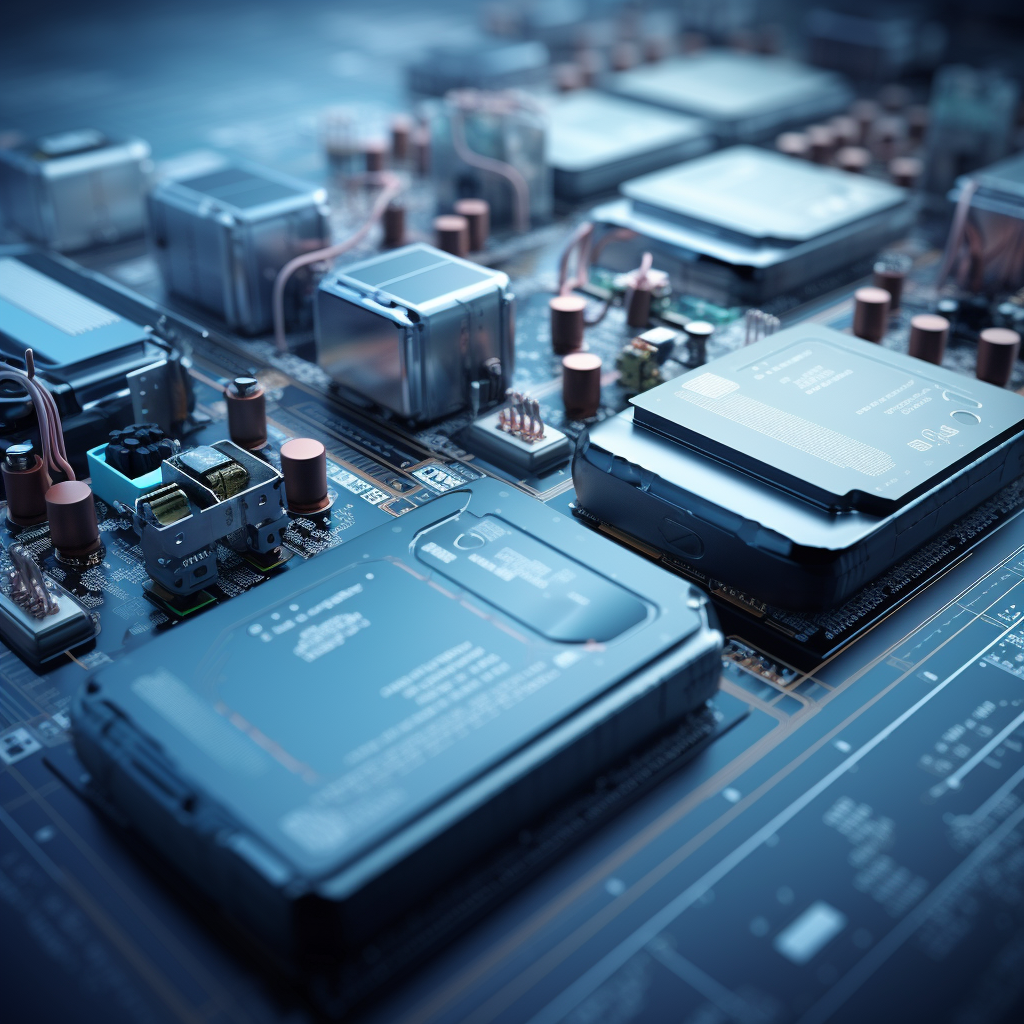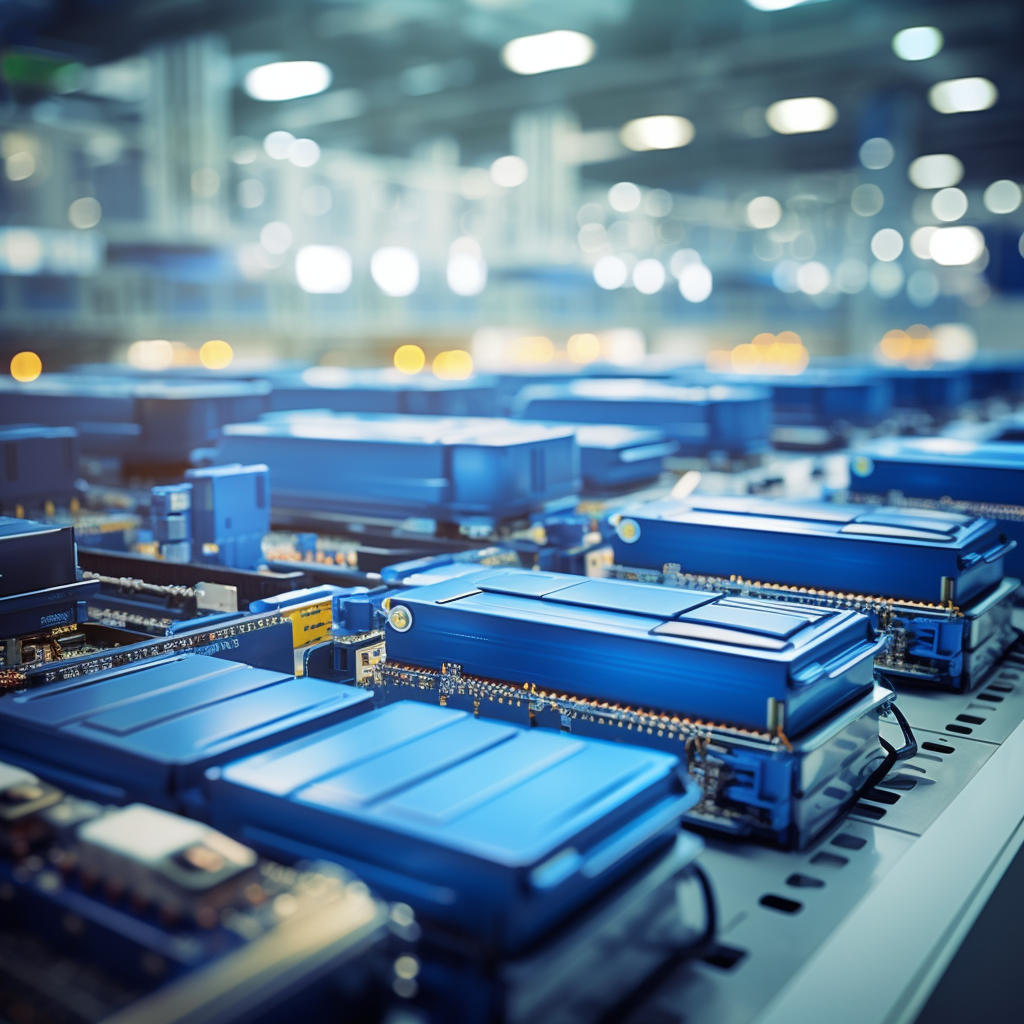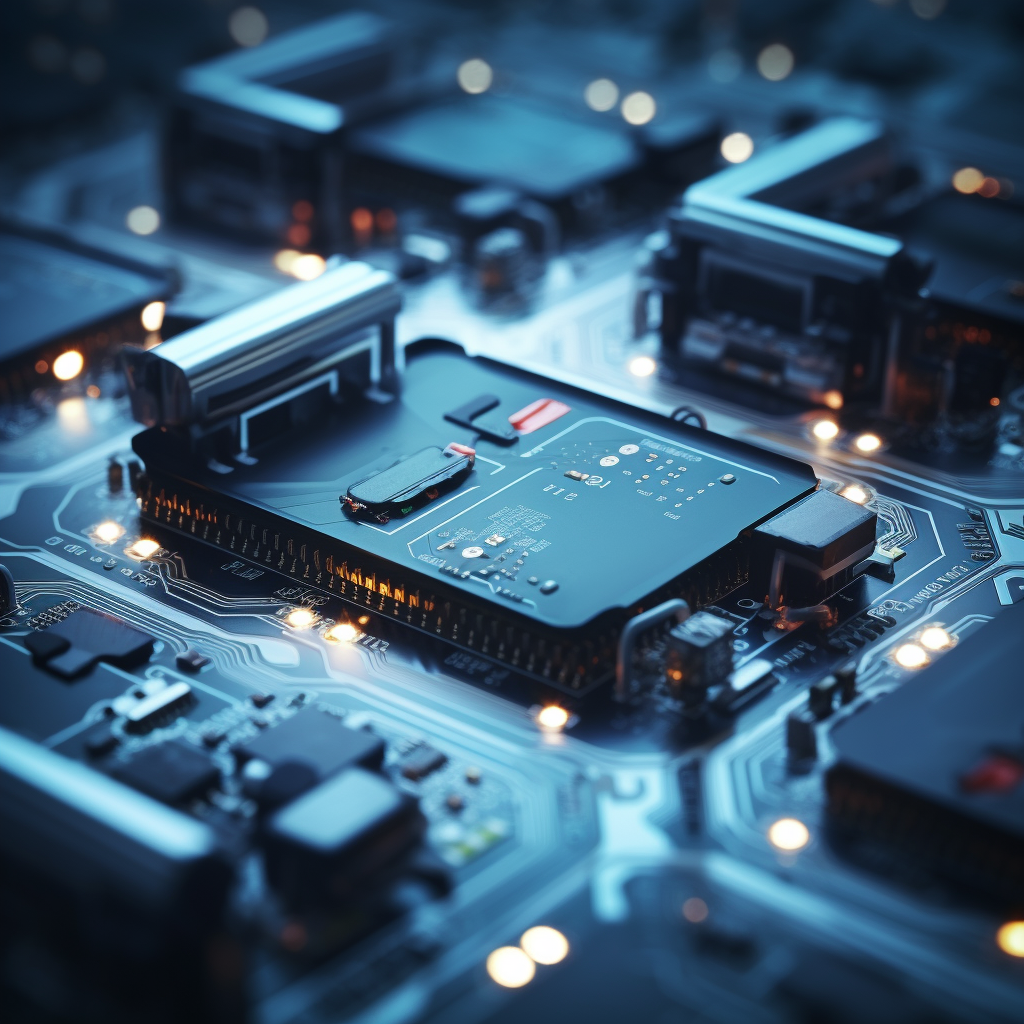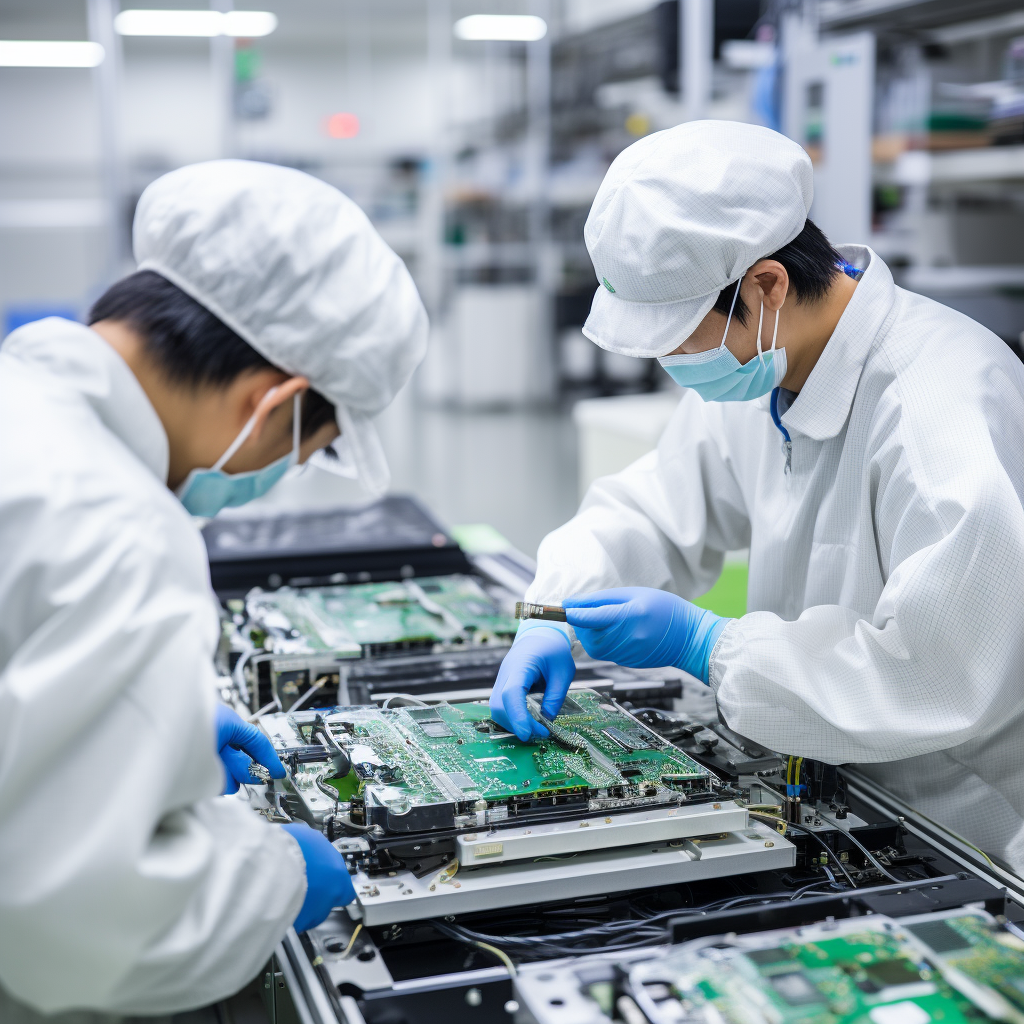Contents
- 1 The Rise of Lithium-Ion Batteries
- 2 What Makes a Great Lithium-Ion Battery Manufacturer
- 3 Overview of Japan’s Battery Manufacturing Industry
- 4 Top Lithium-Ion Battery Manufacturers in Japan
- 5 Comparisons and Contrasts
- 6 Challenges and Opportunities for Japanese Lithium-Ion Battery Manufacturers
- 7 The Future of Lithium-Ion Batteries and the Role of Japanese Manufacturers
- 8 Frequently Asked Questions
- 9 Conclusion
Lithium-ion batteries, despite their recent invention, have become a cornerstone of modern life. They power our smartphones, laptops, electric vehicles, and an increasing number of everyday devices. Japan, with its strong tradition of technological innovation and manufacturing prowess, is home to several leading manufacturers of these essential power sources.
Our modern dependence on technology dictates that we understand more about where these key components come from and who makes them. For this reason, this article will delve into the top manufacturers of lithium-ion batteries in Japan.
Table 1: Global Lithium-Ion Battery Market (2020-2023)
| Year | Global Market Size (in USD billion) |
|---|---|
| 2020 | 36.7 |
| 2021 | 42.5 |
| 2022 | 49.9 |
| 2023 | 58.4 |
This article aims to provide you with detailed insights into Japan’s leading lithium-ion battery manufacturers, their contributions to the industry, and how they stand up against each other. It will be enriched with relevant data, comparisons, and the challenges these manufacturers face, in addition to exploring the future outlook for this critical industry.

The Rise of Lithium-Ion Batteries
Lithium-ion batteries have become ubiquitous due to their superior energy density and rechargeability. Their invention in the late 20th century sparked a revolution in portable electronics, transforming the way we live and work.
Table 2: Timeline of Key Events in the Evolution of Lithium-Ion Batteries
| Year | Event |
|---|---|
| 1970 | M. Stanley Whittingham developed the first lithium battery using titanium disulfide |
| 1980 | John B. Goodenough invented the cobalt-oxide cathode, a key component of lithium-ion batteries |
| 1991 | Sony and Asahi Kasei released the first commercial lithium-ion battery |
| 2008 | The first lithium-ion battery for electric vehicles, the Tesla Roadster, was released |
| 2019 | John B. Goodenough, M. Stanley Whittingham, and Akira Yoshino received the Nobel Prize in Chemistry for the development of lithium-ion batteries |
The market for lithium-ion batteries has expanded rapidly as they’ve become integral to several industry sectors. Notably, the surge in electric vehicle production has fueled an unprecedented demand for these batteries. As the world moves towards a more sustainable future, the lithium-ion battery market is set to continue its upward trajectory, with Japanese manufacturers playing a significant role.
What Makes a Great Lithium-Ion Battery Manufacturer
Several attributes distinguish top lithium-ion battery manufacturers. The primary factors include:
- Innovation: Leading manufacturers continually push the boundaries of what is technologically possible, improving battery performance and efficiency.
- Quality Assurance: High-quality batteries are a result of stringent manufacturing and testing processes, ensuring their reliability and safety.
- Scale of Production: Top manufacturers have the capacity to produce batteries on a large scale, meeting global demand while maintaining high standards.
- Environmental Responsibility: With increasing global focus on sustainability, manufacturers must demonstrate a commitment to minimizing environmental impact.

Overview of Japan’s Battery Manufacturing Industry
Japan’s battery manufacturing industry has a rich history dating back to the early 20th century. Thanks to the country’s strong focus on technological innovation, commitment to high manufacturing standards, and strategic planning, Japan has become a powerhouse in the global battery market.
Table 3: Key Factors Behind the Success of Japan’s Battery Manufacturing Industry
| Factor | Description |
|---|---|
| Technological Innovation | Japan has consistently been at the forefront of technological advancements, including battery technology. |
| High Manufacturing Standards | Japanese manufacturers are known for their meticulous attention to detail and stringent quality controls. |
| Strategic Planning | Japan’s strategic planning has allowed its manufacturers to position themselves effectively in the global market. |
| Skilled Workforce | The country has a highly educated and skilled workforce capable of driving innovation and maintaining quality. |
As we delve into the individual profiles of the top lithium-ion battery manufacturers in Japan, you’ll see these attributes play out consistently.
Top Lithium-Ion Battery Manufacturers in Japan
In this section, we will cover five of the top lithium-ion battery manufacturers in Japan, including Panasonic Corporation, GS Yuasa Corporation, Toshiba Corporation, Hitachi Maxell Ltd., and EnerDel, Inc.
Each of these manufacturers has made significant contributions to the lithium-ion battery industry, with products spanning various markets, from consumer electronics to electric vehicles and energy storage solutions.
4.1 Panasonic Corporation
Founded in 1918, Panasonic Corporation is a global leader in the development of diverse electronics technologies and solutions. Their leading-edge, high-quality products and dedication to innovation have contributed significantly to their reputation as a top lithium-ion battery manufacturer.
Key facts about Panasonic’s lithium-ion battery production:
- Panasonic partnered with Tesla in 2014 to produce lithium-ion batteries for electric vehicles at Tesla’s “Gigafactory” in Nevada, United States.
- The company also offers energy storage solutions, which utilize their lithium-ion batteries, contributing to a more sustainable society.
- Panasonic’s batteries power a range of products from laptops and mobile phones to electric vehicles and power tools.
4.2 GS Yuasa Corporation
GS Yuasa Corporation, a fusion of three leading battery manufacturers in Japan, is a global leader in manufacturing and supplying batteries. The corporation has been at the forefront of lead-acid battery technology for more than a century and has made significant strides in the lithium-ion battery market as well.
Key facts about GS Yuasa’s lithium-ion battery production:
- GS Yuasa has developed innovative lithium-ion cells designed for use in a range of applications, including space, marine, and aviation, as well as energy storage.
- They have played a crucial role in the electric vehicle market, developing high-output, long-life lithium-ion batteries used in various hybrid and electric vehicles.
- In 2009, GS Yuasa, Mitsubishi Corporation, and Mitsubishi Motors Corporation established the joint venture company Lithium Energy Japan to produce large-capacity and high-performance lithium-ion batteries.
4.3 Toshiba Corporation
Toshiba Corporation, founded in 1875, is a world-class innovator in high technology. They are involved in multiple business sectors, including energy systems, electronic devices, and digital solutions. In the realm of lithium-ion batteries, Toshiba has made a significant mark.
Key facts about Toshiba’s lithium-ion battery production:
- Toshiba developed the Super Charge ion Battery (SCiB), a highly safe rechargeable battery with outstanding performance for a wide array of uses.
- In 2019, Toshiba announced a new anode material for lithium-ion batteries that doubles the battery’s capacity.
- Toshiba’s lithium-ion batteries are utilized in various applications, including electric vehicles, industrial equipment, and emergency power supply devices.
4.4 Hitachi Maxell Ltd.
Hitachi Maxell Ltd., a subsidiary of Hitachi Ltd., has been a key player in the battery industry since 1960. Though known for various electronics, the company’s contribution to lithium-ion batteries cannot be understated.
Key facts about Hitachi Maxell’s lithium-ion battery production:
- Hitachi Maxell has developed a wide range of lithium-ion batteries suitable for numerous applications, including mobile devices and power tools.
- They emphasize high-capacity, long-life batteries that combine safety and performance.
4.5 EnerDel, Inc.
Although EnerDel is a U.S. based company, it is a subsidiary of the Japanese company Ener1 Inc. EnerDel is recognized for its high-performance, high-quality lithium-ion energy storage solutions.
Key facts about EnerDel’s lithium-ion battery production:
- EnerDel’s batteries are used in electric vehicles, heavy-duty transportation, grid and microgrid, and other industrial applications.
- Their Vigor+ battery pack is recognized as a top-notch solution in the hybrid bus and medium-duty truck market.
Each of these manufacturers has made significant strides in lithium-ion battery production, contributing to Japan’s prominent place in the global market.

Comparisons and Contrasts
While all the manufacturers discussed above contribute to Japan’s leadership in the lithium-ion battery industry, they each have unique strengths and strategies that set them apart.
Table 4: Comparison of Top Lithium-Ion Battery Manufacturers in Japan
| Manufacturer | Strengths | Key Products |
|---|---|---|
| Panasonic Corporation | Partnered with Tesla, diverse applications | EV batteries, energy storage solutions |
| GS Yuasa Corporation | Innovative lithium-ion cells for various applications | Lithium-ion cells for space, marine, and aviation; energy storage |
| Toshiba Corporation | Developed the Super Charge ion Battery (SCiB) | SCiB, high-capacity batteries |
| Hitachi Maxell Ltd. | Wide range of lithium-ion batteries | Batteries for mobile devices and power tools |
| EnerDel, Inc. | High-performance energy storage solutions | Batteries for EV, heavy-duty transportation, and industrial applications |
While Panasonic and Toshiba have gained international recognition through partnerships and innovative products, companies like Hitachi Maxell and EnerDel, Inc. continue to impress with their diverse range of high-quality batteries. Meanwhile, GS Yuasa stands out for its expertise in creating specialized lithium-ion cells for various applications.
Each of these companies faces its own set of challenges and opportunities, which will shape the future of Japan’s lithium-ion battery industry.
Challenges and Opportunities for Japanese Lithium-Ion Battery Manufacturers
As with any industry, Japanese lithium-ion battery manufacturers face a unique set of challenges and opportunities.
Table 5: Challenges and Opportunities for Japanese Lithium-Ion Battery Manufacturers
| Challenges | Opportunities |
|---|---|
| Rapid advancements in battery technologies | Embracing new technologies and improving battery performance |
| Increased global competition | Expanding market share through innovation and partnerships |
| Sustainability and environmental concerns | Advancement in eco-friendly and energy-efficient solutions |
| Fluctuating raw material prices | Securing stable and cost-effective supply chains |
6.1 Rapid Advancements in Battery Technologies
The pace of technological innovation in the battery industry is a double-edged sword. While it drives improvements in performance and efficiency, it also means manufacturers must continually invest in research and development to stay competitive.
6.2 Increased Global Competition
The global lithium-ion battery market is highly competitive, with players from China, South Korea, and the United States vying for market share. Japanese manufacturers must continue to innovate and forge strategic partnerships to maintain their competitive edge.
6.3 Sustainability and Environmental Concerns
Manufacturers face pressure to reduce the environmental impact of their products. This means developing more sustainable manufacturing processes and improving the energy efficiency and recyclability of their batteries.
6.4 Fluctuating Raw Material Prices
The cost of lithium and other raw materials can significantly impact battery prices. Securing a stable and cost-effective supply chain is a major challenge for manufacturers.
Despite these challenges, the future looks promising for Japanese lithium-ion battery manufacturers. Their commitment to quality, innovation, and strategic partnerships will continue to serve them well in the years to come.
The Future of Lithium-Ion Batteries and the Role of Japanese Manufacturers
The lithium-ion battery market is poised for significant growth, driven by increasing demand for electric vehicles, portable electronics, and renewable energy storage solutions. Innovation will continue to play a key role in the evolution of this industry, with advancements in energy density, charging speed, and safety.
Japanese manufacturers will likely remain at the forefront of these developments, leveraging their technological prowess and commitment to quality. Key areas of focus for future growth might include:
- Electric Vehicles: As more countries set ambitious goals to phase out internal combustion engine vehicles, the demand for electric vehicle batteries will surge.
- Energy Storage: As renewable energy adoption grows, so too does the need for effective energy storage solutions. Lithium-ion batteries are ideally suited to fill this role.
- Portable Electronics: The market for portable electronics continues to expand, and with it, the demand for compact, efficient, and high-performance batteries.
While challenges persist, the opportunities for Japanese lithium-ion battery manufacturers are vast. Their role in shaping the future of the global battery industry will undoubtedly remain significant.
As we close this comprehensive look into Japan’s top lithium-ion battery manufacturers, it’s clear that Japan’s leadership in this industry is rooted in innovation, quality, and a strategic vision for the future.
Frequently Asked Questions
- Who are the top lithium-ion battery manufacturers in Japan?
- The top lithium-ion battery manufacturers in Japan include Panasonic Corporation, GS Yuasa Corporation, Toshiba Corporation, Hitachi Maxell Ltd., and EnerDel, Inc.
- Why is Japan a leader in the lithium-ion battery industry?
- Japan’s leadership in the lithium-ion battery industry can be attributed to its commitment to technological innovation, high manufacturing standards, strategic planning, and a highly skilled workforce.
- What are the key strengths of these Japanese manufacturers?
- The key strengths of these Japanese manufacturers vary. Panasonic is known for its partnership with Tesla and diverse applications, GS Yuasa for its innovative lithium-ion cells, Toshiba for its Super Charge ion Battery (SCiB), Hitachi Maxell for its wide range of lithium-ion batteries, and EnerDel for its high-performance energy storage solutions.
- What are the challenges faced by these manufacturers?
- These manufacturers face challenges such as rapid advancements in battery technologies, increased global competition, sustainability and environmental concerns, and fluctuating raw material prices.
- What is the future of lithium-ion batteries?
- The future of lithium-ion batteries is promising, with increasing demand in areas like electric vehicles, energy storage, and portable electronics. Innovation in energy density, charging speed, and safety will continue to drive this industry forward.
Conclusion
Japan’s dominance in the lithium-ion battery industry is an intriguing study of innovation, strategy, and steadfast commitment to quality. With stalwarts such as Panasonic, GS Yuasa, Toshiba, Hitachi Maxell, and EnerDel leading the charge, Japan’s influence on the global battery landscape is undeniable.
These manufacturers, with their unique strengths and visionary approach, have not only propelled Japan to the top ranks of the lithium-ion battery industry but have also paved the way for future advancements. From the development of high-capacity, high-performance batteries to the creation of pioneering technologies like Toshiba’s Super Charge ion Battery (SCiB), these manufacturers are at the vanguard of battery technology.
The challenges faced by these manufacturers, ranging from rapid technological advancements and global competition to environmental concerns and fluctuating raw material prices, are indeed daunting. Yet, they also present opportunities for further growth and innovation. By embracing new technologies, forging strategic partnerships, and focusing on sustainability, these manufacturers can turn these challenges into a competitive advantage.
Looking ahead, the future of the lithium-ion battery industry is bright, powered by increasing demand from the electric vehicle, renewable energy storage, and portable electronics sectors. As the industry continues to evolve, Japanese manufacturers are poised to remain at the forefront, shaping the future of battery technology.
Thus, we end our comprehensive journey into Japan’s lithium-ion battery industry. The role of these manufacturers in shaping the future of the global battery industry is not only significant but also exciting, marking the beginning of a new era in technology and sustainable energy solutions.

